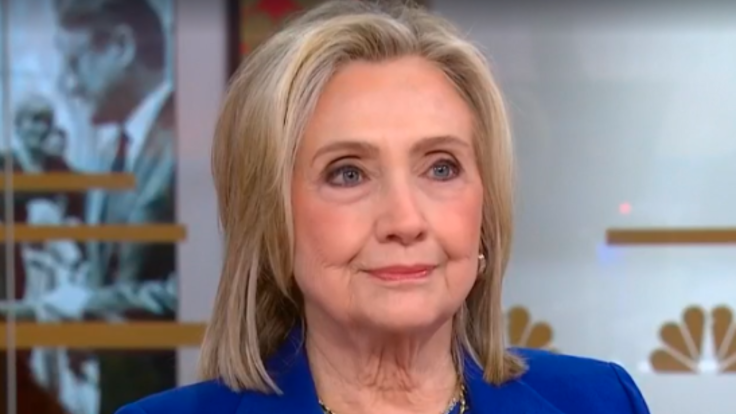Hillary Clinton Erupts Over Trump and RFK Jr.'s 'Crackpot' Tylenol-Autism Theory, Warning It's 'Going to Cause Deaths'
Clinton slams Trump and RFK Jr. over Tylenol-autism theory, calling it reckless and life-threatening.

Hillary Clinton has delivered a fierce rebuke of US President Donald Trump and Robert F Kennedy Jr. after the pair suggested that Tylenol use during pregnancy may be linked to autism.
Clinton, a long-time critic of anti-science rhetoric, condemned the claims as 'crackpot theories' that could 'cost lives' by discouraging women from using safe medicines.
Her intervention came as health authorities and autism advocates rushed to counter the misinformation, warning that it risks serious harm.
For many, her words felt prescient as health leaders warned that false claims about Tylenol could undermine trust in medicine and put vulnerable people at risk.
The Press Event That Sparked Outrage
During a press event in Washington, D.C. on 22 September 2025, President Donald Trump appeared alongside Robert F. Kennedy Jr. and television personality Dr Mehmet Oz.
President Donald Trump claimed that the use of Tylenol (acetaminophen) during pregnancy may be linked to autism in children.
RFK Jr., who has long promoted scepticism about vaccines and mainstream medicine, backed Trump's comments. Neither provided peer-reviewed research to support the allegation, which immediately drew international attention.
Scientists and Health Agencies Push Back
Medical experts quickly rejected the remarks. The World Health Organisation (WHO) said there is no conclusive evidence linking acetaminophen use in pregnancy with autism, stressing that 'no consistent association has been established.'
FactCheck.org notes that while some observational studies have explored prenatal exposure, none prove causation. The US Food and Drug Administration, American College of Obstetricians and Gynaecologists, and other health bodies continue to deem acetaminophen safe when used as directed, including during pregnancy.
Doctors explain that acetaminophen is often the only recommended pain and fever reliever during pregnancy, since alternatives like ibuprofen and aspirin can pose risks to foetal development. Health experts warn that discouraging its use could leave pregnant women without safe options, raising risks from untreated high fevers or unmanaged pain.
Why the Claim Matters
The controversy recalls earlier misinformation campaigns around vaccines, many of which RFK Jr. has championed. Autism advocacy groups condemned President Donald Trump and Kennedy's remarks, warning they exploit parental fears without evidence and risk worsening stigma. For families already navigating autism diagnoses, linking the condition to everyday medicines can deepen feelings of blame and confusion.
Scientists emphasise that autism is a complex developmental condition influenced by genetics and multiple environmental factors, not a single drug. Repeating debunked theories about causes, they say, distracts from research and undercuts support for those living with autism.
Misinformation in a Political Season
The timing of the remarks has intensified concern. With the US presidential cycle heating up, critics say spreading baseless medical claims at campaign-style events risks politicising public health. RFK Jr., who has built much of his platform around questioning vaccines and regulatory agencies, appeared eager to extend that scepticism to other medicines.
Public health experts fear that normalising such rhetoric from high-profile figures could embolden conspiracy groups and erode confidence in doctors. 'When leaders amplify false links between autism and safe drugs, it doesn't just misinform it can change behaviour in ways that put lives in danger,' one medical ethicist told the Washington Post.
What Happens Next
Health regulators have not signalled any policy changes regarding acetaminophen, which remains widely recommended for pain and fever relief during pregnancy when taken as directed. Instead, agencies like the WHO and FDA are stepping up campaigns to combat medical misinformation, using social media and press briefings to reassure the public.
For Trump and Kennedy, the controversy may energise parts of their political base sceptical of mainstream science. But experts warn that if such theories spread unchecked, they risk deterring parents from using safe treatments, a scenario that could lead to preventable illness and, in extreme cases, death. As scientists, policymakers and autism advocates stress, misinformation about medicine carries consequences far beyond politics.
© Copyright IBTimes 2025. All rights reserved.





















